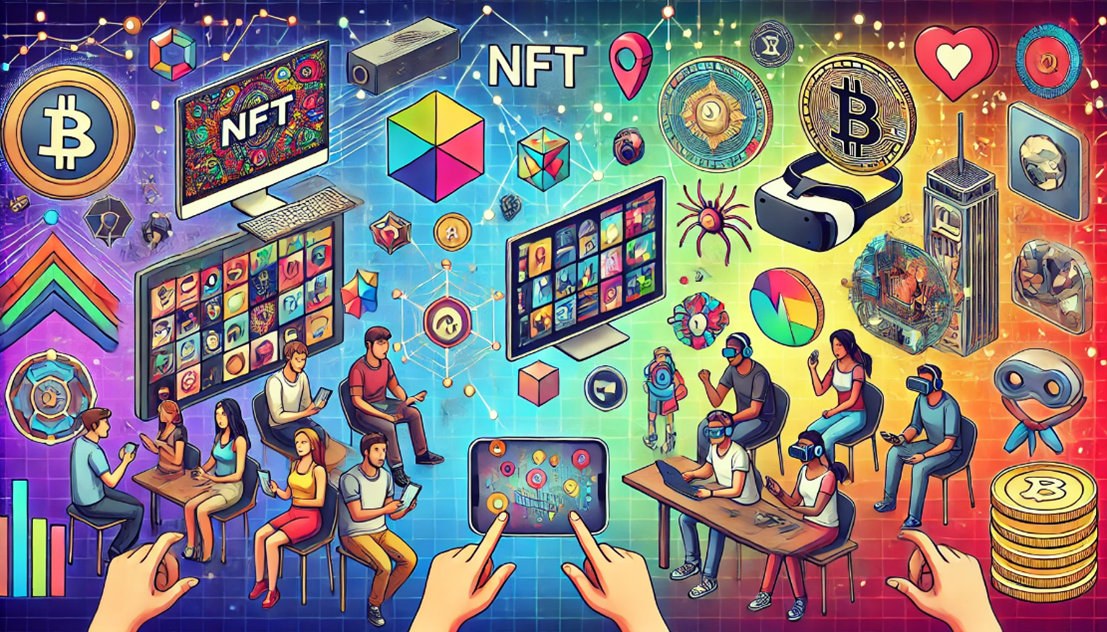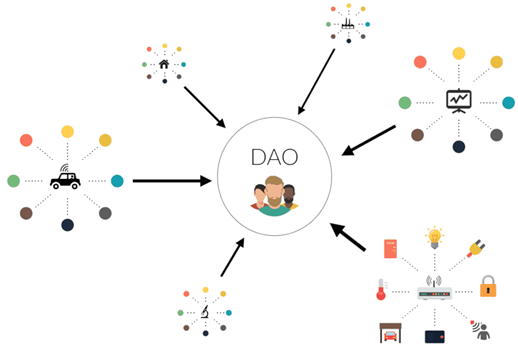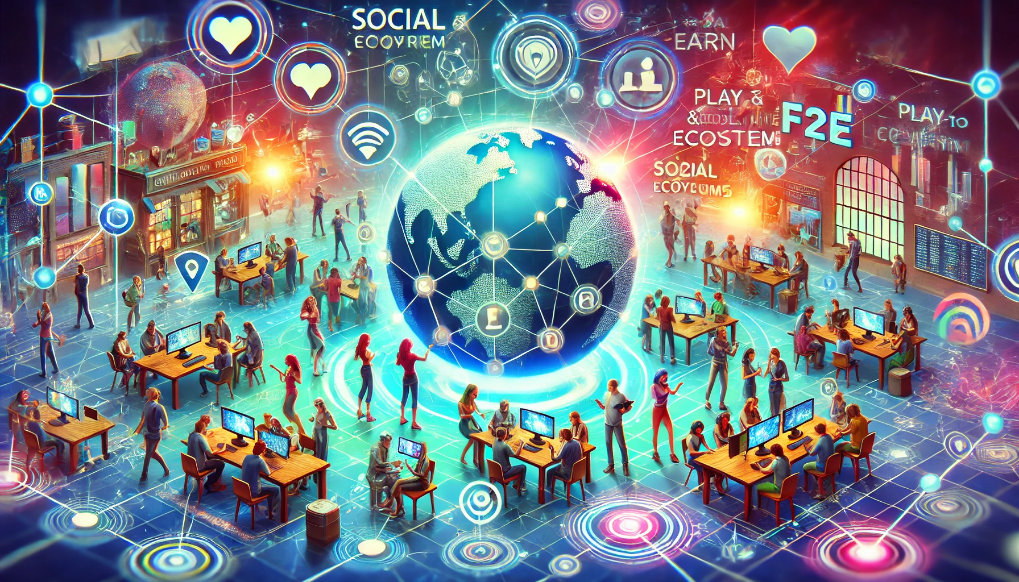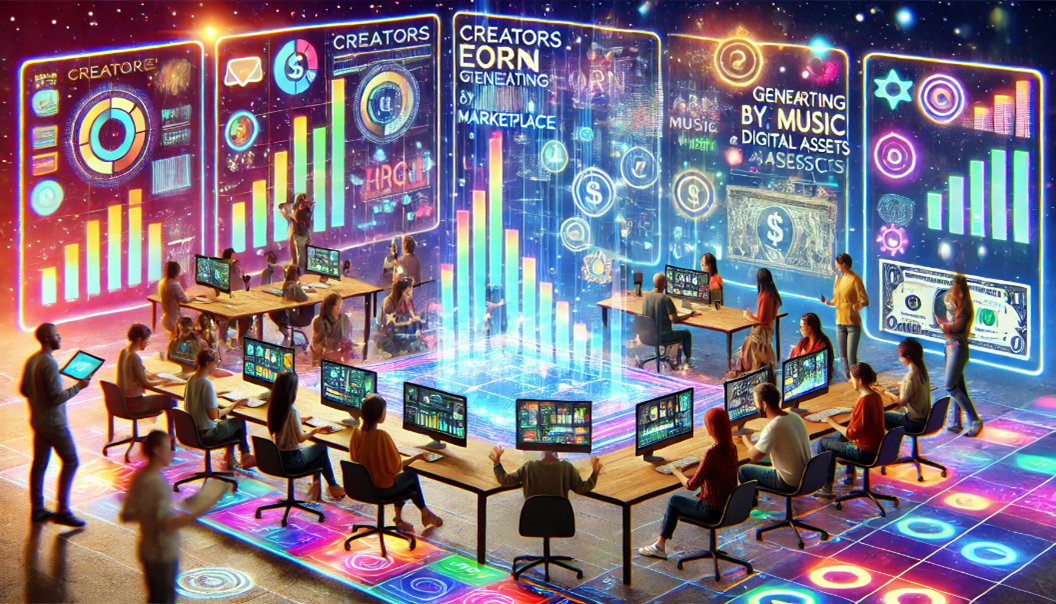Empowerment through earnings in developing regions of P2E Game

Empowerment through earnings in developing regions of P2E Game
by Nathaniel 04:19pm Jan 09, 2025
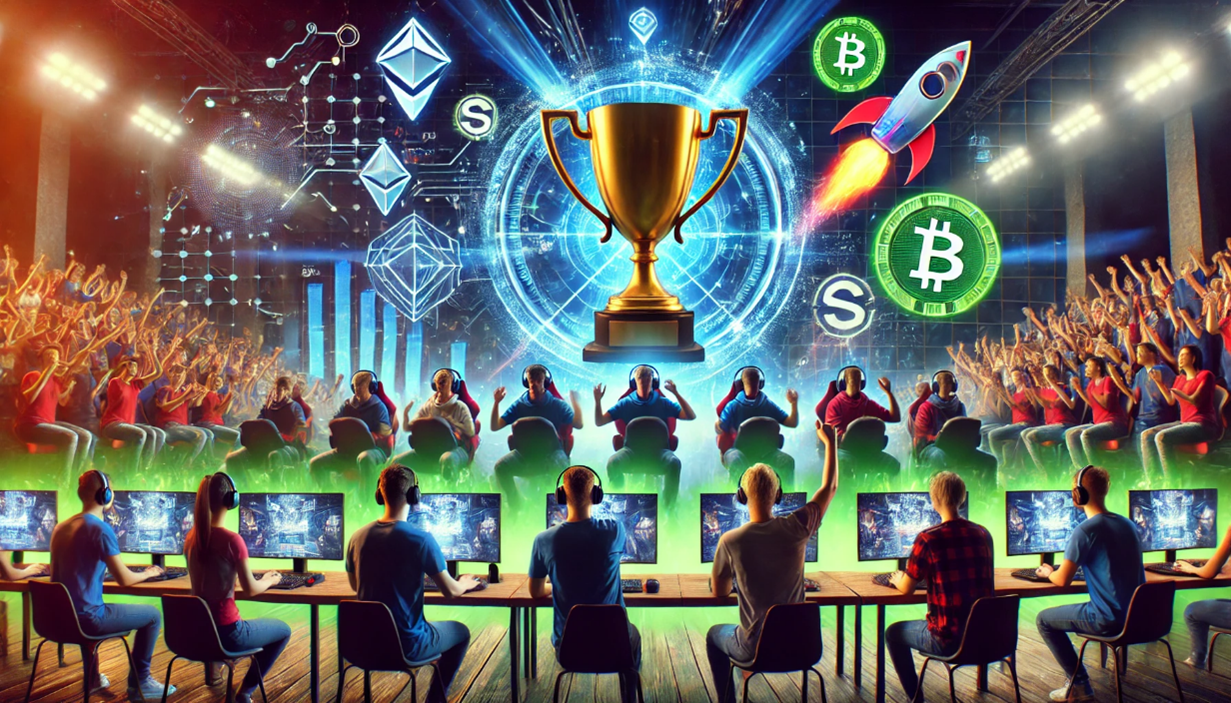
Empowerment through earnings in developing regions of P2E Game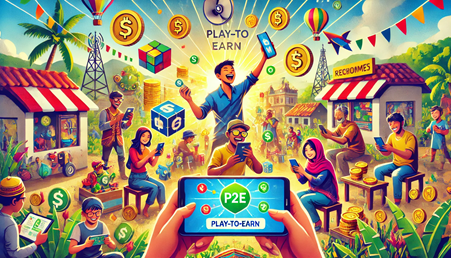
Empowerment through earnings in developing regions is one of the most transformative aspects of Play-to-Earn (P2E) gaming. By leveraging blockchain technology, cryptocurrency, and NFTs (Non-Fungible Tokens), P2E games provide players in underdeveloped and emerging economies with the opportunity to generate income, achieve financial independence, and overcome economic barriers. Here’s how P2E games can empower players in developing regions:
1. Financial Inclusion and Accessibility
Access to Digital Economies: Many people in developing regions face challenges accessing traditional banking systems due to lack of financial infrastructure, remote locations, or poor credit history.P2E games provide a digital financial ecosystem through cryptocurrencies and blockchain technology, which circumvents traditional banking barriers. Players can participate in the global economy, earn digital assets, and convert them to real-world value, even if they don't have a bank account or a credit card.
Cryptocurrency as a Financial Tool: P2E games often use cryptocurrencies as rewards, which can be used for in-game purchases or exchanged for fiat currencies. This is especially important in regions where local currencies may be volatile or prone to inflation. Cryptocurrencies like Bitcoin,Ethereum, or stablecoins can provide a more stable store of value, empowering players to earn, store, and transfer their earnings securely.
2. Job Creation and Economic Opportunities
New Income Streams:P2E games enable players to earn by playing and interacting with the game. In many developing regions, P2E games offer an accessible way to generate income, especially for people who may not have other job opportunities due to unemployment, underemployment, or economic instability. Players can earn by:
Completing tasks or missions within the game.
Selling in-game assets (such as NFTs or tokens).
Renting out digital assets (such as virtual land, characters, or skins) to other players.
Participating in in-game economies, where they can earn currency or rewards that can be exchanged for real-world value.
Remote Work and Flexibility: Many P2E games offer the flexibility to play and earn at any time of the day, allowing players to generate income while managing other responsibilities (like work or school). This flexibility can be empowering for individuals who live in areas with limited employment opportunities or those seeking to supplement their income.
3. Community Building and Social Capital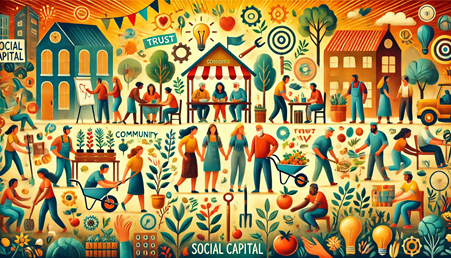
Guilds and Social Networks: In many developing regions, P2E games promote the formation of guilds, teams, or communities that work together to achieve in-game goals and share rewards. These communities often become powerful social networks where players can learn from each other, collaborate, and create new opportunities. Guilds can help new players learn the ropes of the game, pool resources, and earn more collectively.
Collaborative Earnings: Guilds or clans in P2E games often share rewards or assets, creating an inclusive model where even players with limited experience or resources can earn. In some cases, players who cannot afford to buy valuable in-game assets (like high-level characters or rare NFTs) can join guilds and access resources to earn rewards, creating a collective economic system.
4. Educational Empowerment
Digital Literacy:Participating in P2E games can help players develop valuable skills in blockchain technology, cryptocurrency management, and digital finance.These skills are in high demand and can be transferable to other aspects of life, such as entrepreneurship, financial planning, and investment strategies. Players in developing regions can gain knowledge about:
Cryptocurrency wallets and how to securely store digital assets.
Market trends, such as the value of in-game assets or cryptocurrency fluctuations.
DeFi (Decentralized Finance) principles, which allow players to invest, borrow, and lend within the P2E ecosystem.
Access to Financial Tools: Many P2E games offer learning opportunities that go beyond the game itself, including workshops, tutorials, or community-run events that teach participants about financial empowerment and self-sufficiency.For example, players can learn how to manage their earnings from playing, develop budgeting skills, and explore decentralized finance(DeFi) applications for long-term wealth building.
5. Entrepreneurial Opportunities
In-Game Asset Creation: P2E games often include marketplaces where players can create, sell, or trade in-game assets, such as NFTs, skins, or virtual land. This gives players the opportunity to become entrepreneurs by designing unique items or services that are highly valued in the game’s ecosystem. For example, skilled artists or designers from developing regions can create unique skins or avatars and sell them as NFTs to a global market.
In-Game Business Models: Beyond simple earnings, players can set up virtual businesses within the game. For instance, players could start digital land rental businesses (e.g., renting land or properties in virtual worlds), item crafting, or resource management services. By operating in these decentralized digital economies, players can become self-sustaining entrepreneurs in a way that was previously difficult in traditional markets.
6. Earning Through Esports and Competitive Play
Opportunities in Esports: Esports competitions are growing rapidly, and many P2E games have adopted competitive models where skilled players can win prizes through tournaments and competitions. Players in underdeveloped regions can participate in esports tournaments and earn rewards or prize money, potentially improving their standard of living. The ability to compete in global tournaments also creates visibility for talented players from regions that traditionally may not have had access to such opportunities.
Promoting Talented Players: Platforms that showcase esports skills and reward high-performance players can open doors to sponsorships or partnerships.In some cases, highly skilled players are discovered through online competitions and can be signed by gaming teams or companies, gaining access to even more lucrative opportunities.
7. Social Mobility and Reducing Poverty
Supplementing Family Income: In many developing regions, family incomes are low,and P2E games can provide a means of supplementing household earnings. In some cases, parents or young adults may use their gaming earnings to support their families, invest in education, or improve their standard of living.
Breaking the Poverty Cycle: For individuals in economically disadvantaged areas, P2E games can offer a pathway out of poverty. By earning through gaming, individuals can improve their living conditions, access better education, and invest in personal or family growth. This financial empowerment helps reduce economic disparity and provides individuals with more control over their financial future.
8. Incentivizing Social Good and Community Support
Philanthropy through Earnings: Some P2E games include mechanisms for donating or sharing earnings with charity initiatives or community projects. This gives players in developing regions the chance to make a positive impact on their communities by contributing to social causes such as healthcare, education, or disaster relief. This type of system fosters a sense of social responsibility and gives players an opportunity to use their earnings for social good.
Local Community Building: As more players participate in the digital economy, social impact can be seen in local communities. Players might use their game earnings to fund small businesses, sponsor education for local children, or contribute to community development projects.
9. Access to Global Markets and Global Earnings
Global Audience for Digital Assets: P2E games have a global reach, allowing players in developing regions to sell digital assets or participate in global economies. A player from the Philippines, for example, could sell their NFTs to buyers in the United States or Europe, tapping into markets they might not have been able to access in traditional industries.
Cross-Border Transactions: Through blockchain-based systems, P2E games enable seamless cross-border transactions. Players from different countries can earn and exchange assets without dealing with the complexities of international banking systems or high transaction fees, thus facilitating more equitable earning opportunities for people from developing regions.
Conclusion
Play-to-Earn (P2E) games present a powerful tool for empowerment in developing regions by providing economic opportunities, financial inclusion, and social mobility. By creating accessible, flexible, and sustainable earning opportunities through blockchain, cryptocurrency, and NFTs, P2E games enable players in underserved regions to generate income, develop new skills, and engage in the global digital economy. This can have far-reaching effects, not only improving individual livelihoods but also contributing to the broader economic development and social well-being of entire communities.



